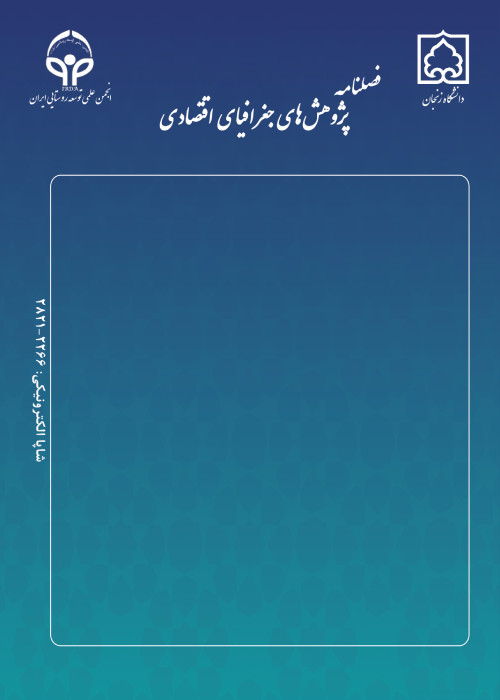Assessing the role of renewable energy consumption and trade policy in the ecological footprint as an indicator of environmental degradation using an innovative accounting approach in Iran
Author(s):
Article Type:
Research/Original Article (دارای رتبه معتبر)
Abstract:
The purpose of this study is to investigate the effect of renewable energy consumption, trade policy, economic growth and biological capacity on ecological footprint as an indicator of environmental degradation in Iran in the period 1986 to 2021. For this purpose, in this study, the autoregressive model with wide distribution interval (ARDL) has been used to obtain long-term and short-term dynamic coefficients. The Toda-Yamamoto causality test was also used to examine the causal path The Cholesky analysis test for innovative accounting has been used to validate the estimated models. The results show that in the long run, there is a positive relationship between the biological capacity variable and the ecological footprint, but it is not statistically significant. However, there is a positive and significant relationship between trade policy variables and GDP with ecological footprint, so that in the long run, with a one percent increase in these variables, the amount of ecological footprint increases by 64.9% and 80.7%, respectively (applying pressure Upward - negative effect on environmental quality), On the other hand, there is a negative and significant relationship between the variable of renewable energy consumption and ecological footprint and increasing one percent of this variable in the long run leads to a decrease in the amount of ecological footprint by 33.9% (applying downward pressure - a positive effect on Environmental quality). The error correction coefficient obtained in this model shows that in each period, 47% of the imbalance resulting from the occurrence of shock and deviation of the short-term model from the long-term trend is adjusted and returns to its long-term trend. There is a two-way causal relationship between trade policy and the ecological footprint. Also, one-way causality from trade policy to GDP is confirmed. The results of Cholesky analysis show that the innovative shocks generated in the variables for the next 10 periods, thus affecting the ecological footprint, so that in the second period the largest share of impact compared to other variables is related to renewable energy by 3.5% But over time and at the end of the tenth period, the largest share of impact is related to GDP of 19.60%, commercial policy of 9.54%, renewable energy consumption of 7.76% and bio-capacity of 1.28%, respectively. Therefore, country-specific energy policies that increase the share of renewable energy in the energy portfolio are recommended.
Keywords:
Language:
Persian
Published:
Journal of Economic geography research, Volume:3 Issue: 10, 2023
Pages:
84 to 103
magiran.com/p2593794
دانلود و مطالعه متن این مقاله با یکی از روشهای زیر امکان پذیر است:
اشتراک شخصی
با عضویت و پرداخت آنلاین حق اشتراک یکساله به مبلغ 1,390,000ريال میتوانید 70 عنوان مطلب دانلود کنید!
اشتراک سازمانی
به کتابخانه دانشگاه یا محل کار خود پیشنهاد کنید تا اشتراک سازمانی این پایگاه را برای دسترسی نامحدود همه کاربران به متن مطالب تهیه نمایند!
توجه!
- حق عضویت دریافتی صرف حمایت از نشریات عضو و نگهداری، تکمیل و توسعه مگیران میشود.
- پرداخت حق اشتراک و دانلود مقالات اجازه بازنشر آن در سایر رسانههای چاپی و دیجیتال را به کاربر نمیدهد.
In order to view content subscription is required
Personal subscription
Subscribe magiran.com for 70 € euros via PayPal and download 70 articles during a year.
Organization subscription
Please contact us to subscribe your university or library for unlimited access!



